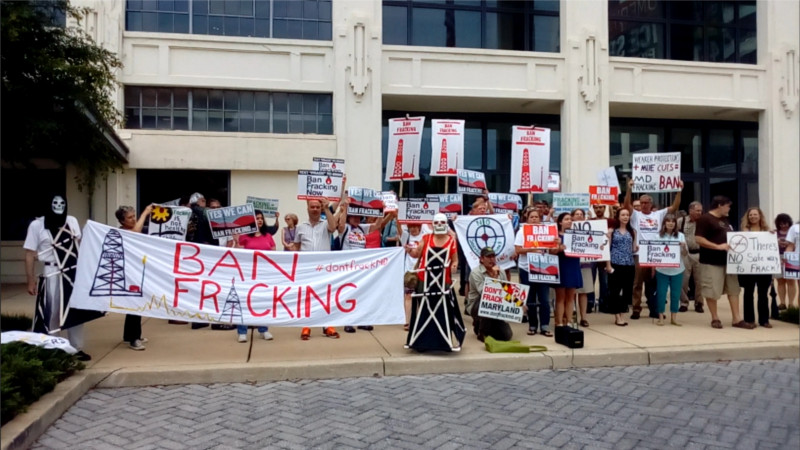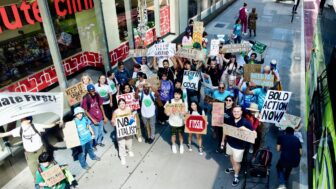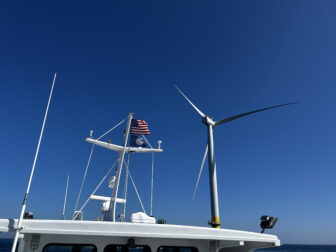
The summer of 2016 has set the groundwork for a frack-free future in Maryland. Hundreds of you drove to meetings to tell the Hogan Administration: we don’t want flawed regulations — we want a permanent ban on fracking. Dozens of you have petitioned at farmer’s markets, gone door-to-door, opened up your congregations to educate your communities on fracking, and so much more. From Western Marylanders bringing a literal “dog and pony show” (pictured above) to the Hogan administration’s public meeting in Oakland to 88 local residents in Rockville showing up to watch the fracking documentary Groundswell Rising — our movement is growing and we are determined to ensure Maryland’s future is built on clean energy, not fracking.
All of our organizing this summer is aimed at building an unstoppable groundswell of public support for passing a permanent, statewide ban on fracking in the 2017 Maryland General Assembly session — the final legislative session before our hard-won, two-year moratorium on fracking will expire.
The stakes were raised this summer. On June 22nd, Hogan administration officials released draft proposals for regulating fracking, the same day as the Maryland Department of the Environment’s first scheduled public meeting to discuss those draft rules in Cumberland. Residents in Western Maryland who are on the front lines of potential fracking had just a few hours to pore over dozens of pages of technical documents that could impact their water, their livelihood and the health of their communities.
During a series of three public meetings, Maryland legislators and concerned citizens made it clear — a permanent, statewide ban on fracking is the only rational option for Maryland. The Hogan’s administration’s proposals would roll back air and water monitoring requirements, slash safety precautions, and ultimately welcome fracking to Maryland starting in October 2017.
We didn’t take these rollbacks on our health, safety and well-being lying down.
In Baltimore, State Senator Bobby Zirkin told Hogan administration officials, “I am afraid you have it wrong on this one” and at an outdoor rally pledged to a crowd of over 100 people that he will introduce legislation to ban fracking in the upcoming legislative session.

Hours and hours of testimony were put forth in Baltimore City with over 70 people telling the Hogan administration to BAN FRACKING NOW. At the final stop in McHenry, Western Marylanders brought a dog and a pony to the rally to show exactly what they thought about these new regulations.
Meanwhile, before and after the release of the draft regulations, activists across Maryland moved full-steam ahead to ask local elected officials to take action to ban fracking. The town of Friendsville in Garrett County banned fracking. The town council in Greenbelt wrote a letter to their state delegation asking for a permanent ban on fracking. In Charles County, the county council adapted their comprehensive plan to restrict fracking and will be introducing a “no fracking” zoning ordinance this fall. County leaders in Prince George’s and Montgomery County, which have already banned fracking in their counties, are encouraging other legislators to take up the charge. Prince George’s County Councilwoman Mary Lehman, sponsor of her county’s fracking ban, convened a meeting of local advocacy groups and legislators at the annual gathering of the Maryland Association of Counties to strategize on how we can ban fracking across our state.
Dozens of activists are working on the ground to pass ban ordinances and resolutions in their own towns, building a strong grassroots movement for a frack-free future.
Here’s how you can join our movement today and act locally in your own community to keep Maryland frack-free:
- Get your city to endorse a ban on fracking: Download the CCAN fracking activist toolkit for a step-by-step guide.
- Sign the petition: Add your name to the call for a permanent ban on fracking in Maryland!






